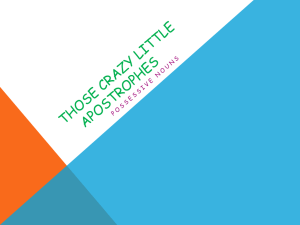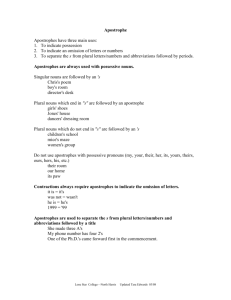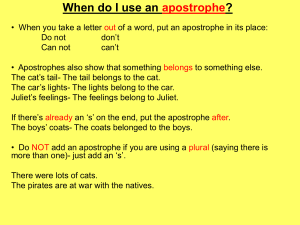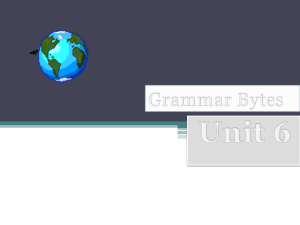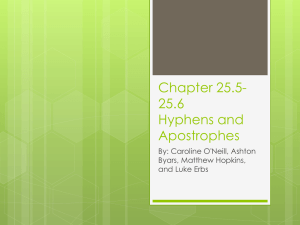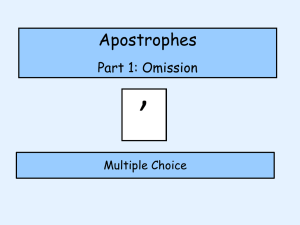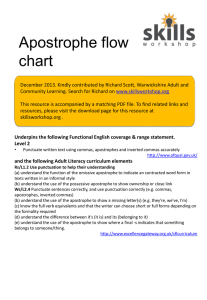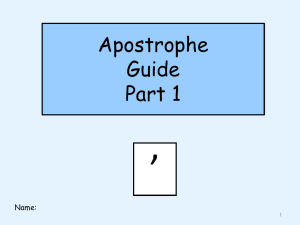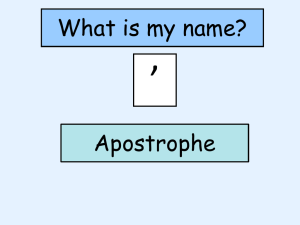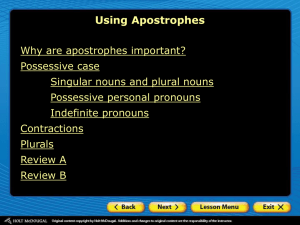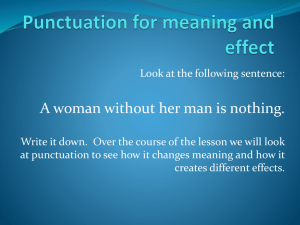Using Apostrophes
advertisement
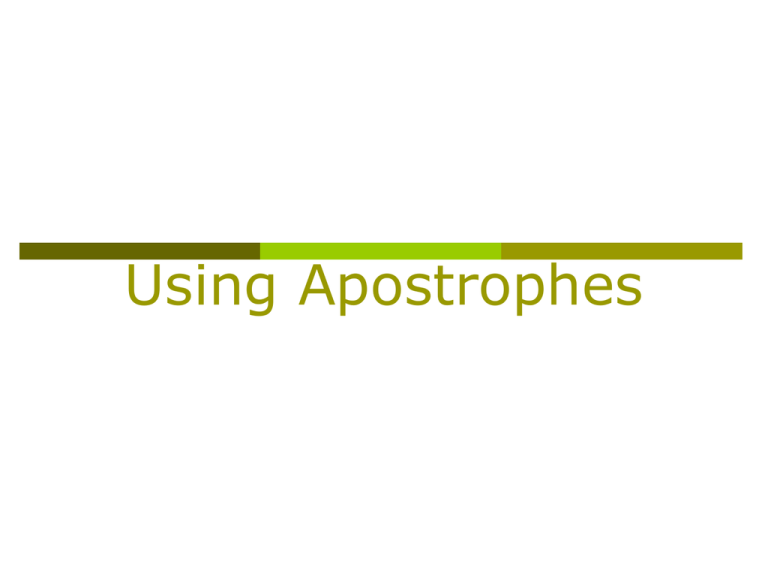
Using Apostrophes Using Apostrophes There are two uses for apostrophes: 1. to form contractions o did + not = didn’t 2. to show possession or ownership o Jean’s essay was good. ’ Using Apostrophes o FORMING CONTRACTIONS o I + am = I’m o could + not = couldn’t o REMEMBER: The apostrophe takes the place of the missing letter(s). Be sure to put it in the right location! o Did’nt Didn’t Using Apostrophes o SHOWING POSSESSION: Singular o the hat belonging to the girl = the girl’s hat the coat belonging to the boy = the boy’s coat the title belonging to the book = the book’s title o o o REMEMBER: You need to add both the apostrophe and the -s. Using Apostrophes Tip: Even when a singular noun already ends in -s, you must still add an apostrophe and an -s to form the possessive. o The class’s test scores were high. o Lewis’s essay was interesting. Using Apostrophes SHOWING POSSESSION: Plural Form the possessive of plural nouns, including plural names, by adding just an apostrophe. No additional -s is needed after the apostrophe when the plural noun already ends in -s. o o The two computers’ monitors were different. The Clintons’ relationship is interesting. Using Apostrophes Tip: When a plural noun does not end in -s, you must add an apostrophe and -s to form the possessive. o The children’s boots are covered with mud. o Men’s fashions do not change as radically as women’s do. Using Apostrophes HERE’S A COMMON MISTAKE! Don’t make a noun possessive when it really is just a plain old plural. X did well. The students’ plain old plural The students’ success was well deserved. possessive Using Apostrophes Here’s another common mistake! Don’t mix up possessives and contractions. Possessive Contraction theirs there’s (= there is) who’s (= who is) you’re (= you are) whose your Using Apostrophes o Here’s an exception to the rule about forming possessives: Possessive pronouns do not use apostrophes. o That is ours. o That is yours. o That is theirs. o That is hers. o That is his. Using Apostrophes Using Apostrophes Many people confuse its and it’s. Remember that its, which means belonging to it, is like other possessive pronouns—it doesn’t take an apostrophe! The contraction it’s means it is. The apostrophe tells you that the letter i is missing. Using Apostrophes o The bakery donates its leftover bread to a soup kitchen. o It’s too late to register for that course now. Using Apostrophes A turtle hides it’s head and legs when its afraid. A turtle hides its head and legs when it’s afraid. Using Apostrophes Its snowing, so the traffic department will send out it’s plows. It’s snowing, so the traffic department will send out its plows. Using Apostrophes And that’s all there is to know about apostrophes. Easy, isn’t it? Using Apostrophes THE LESSONS END …oops, I meant THE LESSON’S END! To review apostrophes, see Chapter 32.
